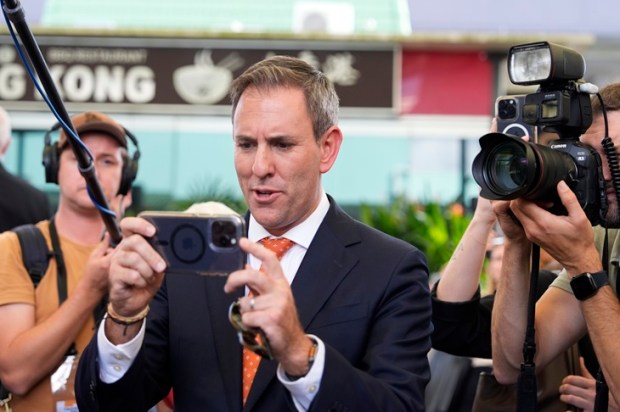There’s more in common between Australia and the United States than you may think.
Apart from a love of big trucks, ball games, and a general frontier culture, Australia and the US also boast strong defence and maritime ties.
For instance, the very ship that discovered the east coast of Australia – the HMS Endeavour – currently sits at the bottom of Newport Harbour in the US state of Rhode Island.
No, the Yanks didn’t sink it. The British scuttled it to prevent the French from storming the harbour during the US War of Independence.
I migrated to the US via the Australians-only and very lax E-3 Visa: regarded by many as being a thank you to Australia for our participation in the Iraq War.
Our defence ties are strong, but they are also currently being tested, and nowhere is this more evident than in the Indo-Pacific region.
Straddling over 17,000 kms from Los Angeles to Madagascar, the Indo-Pacific is home to 60 per cent of the world’s GDP and 20 of its 33 megacities.
As much as a quarter of the world’s maritime trade passes through the Strait of Malacca, the narrow pass off the coast of Singapore.
Impede that traffic, and the supply chain challenges of 2022 will pale in comparison to those that follow.
The elephant in the room that I am yet to mention is China.
China has made no secret of its ambitions in the Indo-Pacific, resorting to terraforming islands in the South China Sea and building airbases atop.
For China, Taiwan sits like a key and a prize, glimmering in the distance, ready for the taking.
The conquest of the island would enable Beijing to project power beyond what wargamers refer to as the ‘First Island Chain’, and contest US dominance in the region.
Should China President Xi Jinping make that play, the consequences would be devastating: both for Australia and the US.
China is Australia’s largest two-way trading partner, accounting for 26 per cent of our trade of goods and services with the world.
A third of Australians have solar panels on their home (which feed into the power grid), 90 per cent of which are made in China.
Should a conflict break out, not only Australian stock markets plummet to unimaginable lows, but we may even face power shortages.
That’s not to mention the consequences in blood and treasure borne by Americans for having to fight a naval, and potentially, land war in Asia.
Fortunately, not only is war with China a distant prospect at present, but it is also completely avoidable.
The key is to show Beijing that the negatives of confrontation far outweigh any benefits.
If you work with members of China’s professional and managerial class, you’ll realise that they are a culturally mercantile bunch.
Beijing will do business with whoever and whatever, so long as it suits their interests.
At times, this attitude can be frustrating because it means that Western-made microchips find their way into Russian drones in Ukraine.
On the other hand, it can make it easier to respond given that you’re dealing with someone who follows realpolitik.
Enter Aukus.
Formed in 2021 and involving two pillars, Aukus is a trilateral security partnership between Australia, the United Kingdom, and the US.
The first pillar is a project to supply Australia with nuclear-powered submarines to replace our ageing diesel-powered Collins-class subs.
The second is focused on enhancing radar, cybersecurity, and hypersonic and counter-hypersonic missile capabilities.
The US must demonstrate leadership and not only maintain its commitment to Aukus but seek ways to deepen and strengthen the alliance.
For starters, Australia needs long-range strike options.
Yes, Australia is currently developing those through our acquisition of Tomahawk missiles. But in the interim, the US should deploy and rotate through Australia its next generation B-21 Raider bomber.
With a payload equivalent to six F-35s, and a range equivalent to three, the B-21 would act as a strong deterrent in the short term.
Second, the US has allies in the region other than Australia. On 5 April, US Tokyo Ambassador Rahm Emanuel announced that Japan is set to join the second pillar of Aukus.
The US should engage other democracies in the region such as Canada and South Korea about joining the alliance as well.
Third, the Congress should jettison harmful ‘Buy America’ defence provisions in favour of ‘Buy Aukus’.
Apart from helping to revitalise the industrial bases of the three partner nations, the move would also improve supply chain resiliency.
All things considered; counterbalancing China isn’t just about economics. It’s also about values. Specifically, those of a liberal and rules-based world order.
As the advertisement currently playing on American TV says, Aukus is about the US and its allies going forward, staying forward, together.
Nik Kaurin is a Boston-based Australian expatriate and Public Relations Specialist. In Australia, Nik worked as an advisor for trade unions, peak industry bodies, and for state and federal parliaments.

























